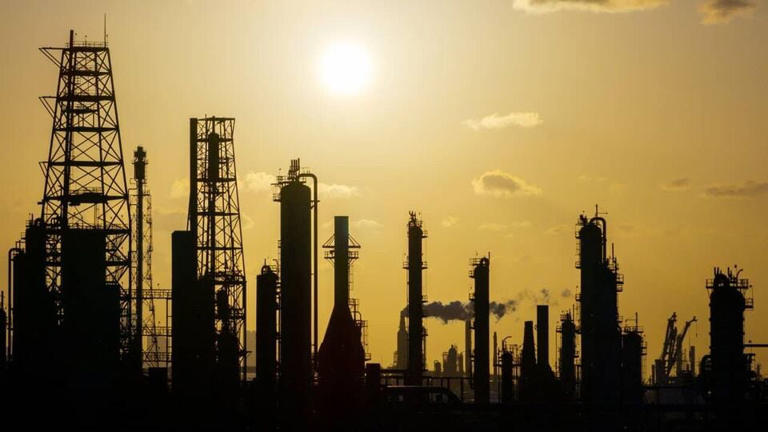Global oil markets experienced a sharp decline this week as increased supply from major producers coincided with a slowdown in demand across key economies. Benchmark crude prices fell to their lowest levels in nearly a year, raising concerns among oil-exporting nations while offering relief to consumers and businesses struggling with high energy costs.
Analysts note that the dip reflects broader shifts in global energy dynamics, with renewables and efficiency measures reducing dependence on traditional fossil fuels.
OPEC’s Strategic Response
In response to falling prices, the Organization of the Petroleum Exporting Countries (OPEC) and its allies are considering production cuts to stabilize the market. Officials from Saudi Arabia and Russia, two of the largest exporters, hinted at coordinated measures during upcoming negotiations.
However, some members remain reluctant, fearing that reducing output could undermine their market share at a time when competition from U.S. shale producers is intensifying.
Demand Weakness in Global Economies
The decline in oil demand is linked to slower economic growth in major economies such as China, Europe, and the United States. Manufacturing slowdowns, reduced freight activity, and shifting consumer behavior have all contributed to weaker consumption.
At the same time, growing adoption of electric vehicles and government policies promoting green energy are gradually reshaping global fuel demand, a trend expected to accelerate in the coming years.
Business and Consumer Impact
For businesses reliant on transportation and logistics, the fall in oil prices provides a much-needed reprieve. Airlines, shipping companies, and manufacturing industries stand to benefit from reduced operational costs, potentially boosting profitability. Consumers, meanwhile, could see lower fuel prices at the pump, easing household budgets after years of inflationary pressure.
On the flip side, oil-dependent economies face fiscal challenges. Countries heavily reliant on oil revenues may struggle to fund public programs, infrastructure, and subsidies without higher prices.
Long-Term Implications for Energy Transition
The recent price drop highlights the volatility of fossil fuel markets and reinforces arguments for accelerating the transition to renewable energy. Energy experts suggest that fluctuations in oil prices create uncertainty for businesses and governments, making clean energy a more attractive long-term investment.
Financial institutions are increasingly factoring sustainability into their portfolios, signaling a shift in global capital flows toward renewables and green infrastructure.
FAQs
Why are oil prices falling right now?
Prices are dropping due to oversupply from major producers combined with weakening global demand.
How is OPEC responding to the price decline?
OPEC is considering production cuts to stabilize the market, though internal disagreements may complicate action.
Who benefits from lower oil prices?
Businesses in transportation and logistics, as well as consumers, benefit from reduced fuel costs.
What challenges do oil-exporting nations face?
Lower revenues threaten government budgets and economic stability in oil-dependent countries.
Does this affect the renewable energy transition?
Yes, volatility in fossil fuel markets strengthens the case for accelerating investment in renewable energy.
Conclusion
The recent decline in oil prices underscores the complexities of global energy markets. While consumers and businesses may enjoy short-term relief, oil-exporting economies face mounting fiscal pressures. The situation highlights how interconnected the world’s energy and economic systems have become.
Looking ahead, the volatility of oil markets may further accelerate the shift toward renewable energy and sustainable alternatives. As supply and demand continue to fluctuate, nations and businesses alike must prepare for a future shaped not just by fossil fuels but by cleaner, more stable energy sources.






